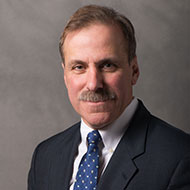
Today we begin a series from the Anxiety and Depression Association of America, a national organization of researchers and clinicians focusing on science, treatment, prevention, and cure of these disorders. In the coming weeks we will share posts from members of this organization shedding light on the disorder, by creating awareness about symptoms, treatment and support.
Mark Pollack, M.D.
Grainger Professor and Chairman, Department of Psychiatry,Rush University Medical Center, and President, Anxiety and Depression Association of America
People with social anxiety disorder (SAD) face unique challenges when it comes to accessing mental health care, and many struggle for years before seeking any type of treatment. For family members supporting an individual with SAD, gaining a deeper understanding of the disorder can help you guide your loved one toward appropriate care and an improved quality of life.
About social anxiety disorder
Social anxiety disorder(SAD), also called social phobia, causes extreme self-consciousness in everyday social situations. (http://www.adaa.org/understanding-anxiety/social-anxiety-disorder) People with SAD have a strong fear of embarrassing themselves or being judged by others. It interferes with an individual’s ability to form relationships, succeed at school or work, and complete everyday tasks that involve interacting with others in person or even on the phone. SAD can have a significant impact on nearly every aspect of a person’s life.






Connect With Us